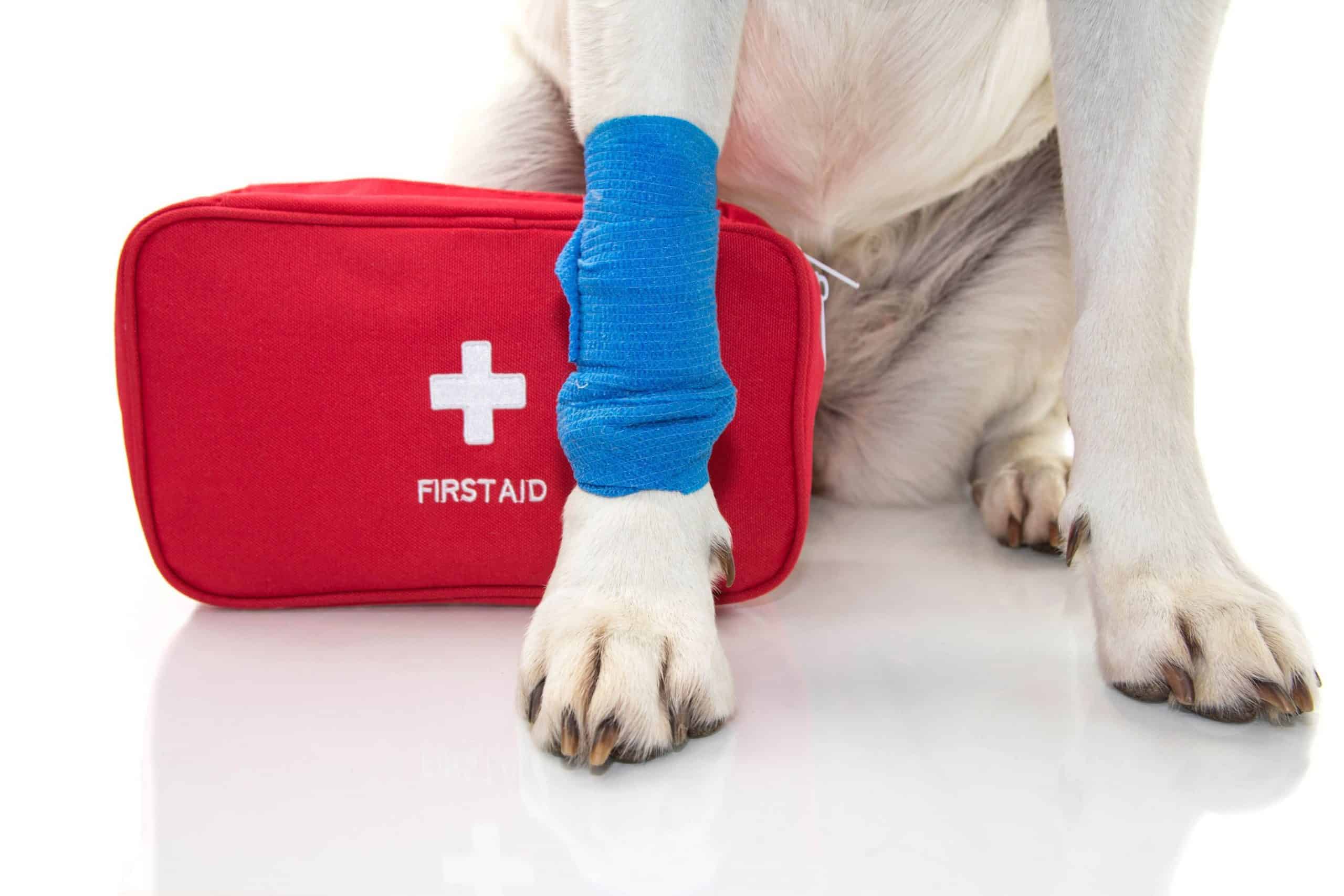Our Top Tips for Pet First Aid

When a pet is sick or injured, everything goes out the window. While Animal Medical Hospital & Urgent Care is here for you around the clock, basic first-aid skills can go a long way towards keeping your head level and your pet in the best hands possible. Basic animal first-aid skills are a must for every pet owner, and we are here to get you started off with your best paw forward.
Basic Animal First Aid for Pet Owners
Identifying a pet emergency is the first key in knowing when and how to start helping your pet. You may need to consider intervening if your pet is:
- Coughing
- Breathing heavily or with an open mouth
- Vomiting or diarrhea that happens more than twice in a 24-hour period
- Having seizures
- Bleeding
- Injured
- Exposed to (or ingested) a toxic or harmful substance
- In obvious pain or distress
- Having trouble urinating
- Showing signs of an eye problem
- Having trouble getting up
- Weak or wobbly
- Overheated
- Hit by a car, injured after a fall, or involved in a dog fight
- Not eating or drinking for 24 hours (12 hours for small or young pets)
- Having trouble birthing puppies or kittens
Once you have identified that your pet needs urgent help, it is time to take action. Completing a pet first-aid course or reviewing a good pet first-aid book can help you to know where to start.
It is also a great idea to have supplies for a basic pet first-aid kit in your home so that you have everything you need.
Our Top Tips
While you can do your best to prepare for potential pet emergencies, you can’t anticipate everything! Our team has some expert tips, though, to help you shine in an urgent situation:
- When in doubt, call us! Call if you are not sure if your pet needs help. Call for direction on how to best help. Call if you are on your way in. This communication helps us to get your pet the best care possible.
- If you have time on your way to see us, bring any medications or supplements your pet is taking. Likewise, if you think that your pet has eaten something harmful, bring along any packaging to help us figure out what and how much was ingested.
- Do not give medications without veterinary supervision. While tempting, many human medications like ibuprofen or Tylenol can be harmful to pets. Even medications prescribed to your pet previously may not be appropriate for this current situation.
- First aid for dogs vomiting should always consist of temporarily picking up the food and water and giving the digestive tract some time to rest. Try offering water in about two hours. If your pet vomits again, it is time to call us. If your pet keeps the water down, you can try a small bite of easy-to-digest food in another few hours. Never place a muzzle on a vomiting pet.
- People’s safety always comes first. An animal who is scared or in pain could always bite. Use a muzzle, a leash muzzle, or a thick blanket when moving a potentially injured pet.
- Place a temporary bandage to help with bleeding, but any injury that requires bandaging should be seen by a veterinarian. Bandages in place for more than a few hours should be professionally placed to minimize risk of rubbing or swelling from a too-loose or too-tight wrap.
Pet first-aid skills are important as an animal lover, but don’t forget that we are here to help you. When we work together as a team, we get the best results for our furry friends.
